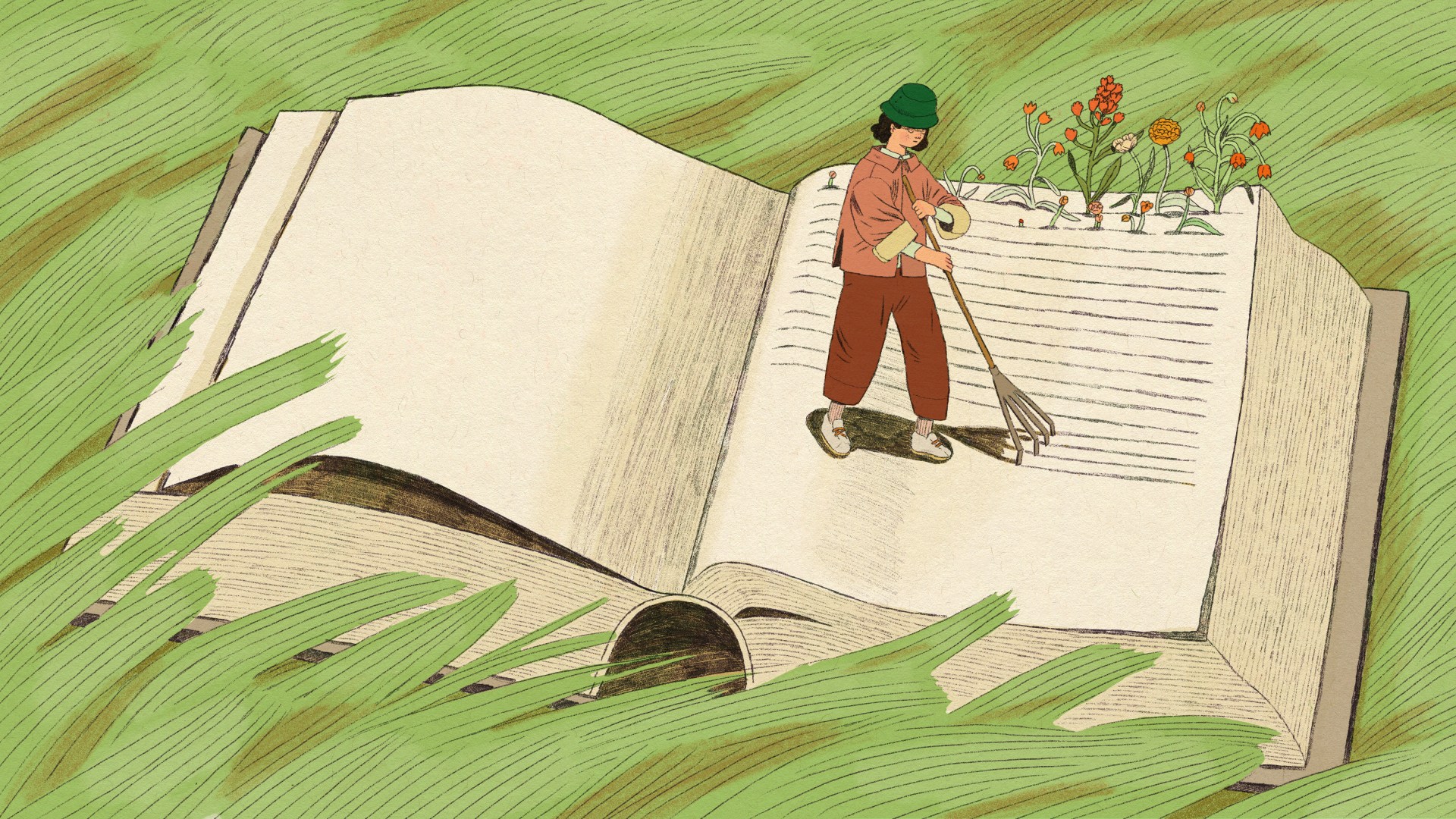In my senior year of college, I studied ecology in Costa Rica and Ecuador. For two weeks, I lived with other students on a small boat in the Galápagos Islands. On one of our excursions, the captain told us there were whales in the area, and I went up to the deck just in time to see a humpback swimming straight at the side of our boat.
The Wonders of Creation: Learning Stewardship from Narnia and Middle-Earth (Hansen Lectureship Series)
InterVarsity Press
144 pages
$13.24
At what seemed to be the very last second, the whale turned on its side and looked up at me. Staring into the eye of that whale was one of the most wondrous moments of my life. In that moment, I experienced awe and joy. I was deeply curious about the whale and felt compelled to act—to learn, to change, and even to protect.
That encounter lasted only a minute, if that, but it had a profound effect on me. In the years since then, I’ve had similar experiences while camping or hiking or wandering beyond a trail. Not everyone experiences creation in this way, nor is everyone physically able to hike through natural landscapes. Still others simply don’t have access.
Nevertheless, I believe everyone can pursue wonder by spending time in fictional landscapes.
On this topic, the works of C. S. Lewis have been significant to me. I remember the first time I “heard” Aslan’s song in The Magician’s Nephew:
In the darkness something was happening at last. A voice had begun to sing. … The voice was suddenly joined by other voices; … the blackness overhead, all at once, was blazing with stars. … The Lion was pacing to and fro about that empty land and singing his new song. … And as he walked and sang the valley grew green with grass. It spread out from the Lion like a pool. It ran up the sides of the little hills like a wave. In a few minutes it was creeping up the lower slopes of the distant mountains, making that young world every moment softer.
As I read, I was transported back to beautiful landscapes I had experienced in my life. I mentally revisited places where I had experienced deep joy—places that have left me with many more questions than answers.
Lani Shiota, a social psychologist who studies emotion, describes “wonder as that moment when our minds are trying to stretch, to take in and comprehend whatever it is that’s before us.” Through Aslan’s song, Lewis invites us into this space of wonder. We’re encouraged to comprehend the beauty of what we are seeing and hearing.
In the Narnia creation story, we see moles, frogs, elephants, and even a lamppost emerge. As we contemplate the cacophony of these beginnings, something stirs in us. Lewis writes:
The Lion was singing still. But now the song had once more changed. It was more like what we should call a tune, but it was also far wilder. It made you want to run and jump and climb. It made you want to shout.
If we understand wonder as virtue, as suggested by Hope College professor Steven Bouma-Prediger, “we exhibit the virtue when we have the cultivated capability to stand in grateful amazement at what God has made and is remaking.” I believe this gratitude for the wonder and beauty of nature should lead us to act through stewardship of creation.
In his essay “Wonder and the Critical Encounter,” philosopher H. Martyn Evans agrees that awe should move us to action. He suggests that wonder is a “transfiguring encounter” that results in an “altered, compellingly intensified attention to something that we immediately acknowledge as somehow important.”
Can a reader’s experience of fictional landscapes shape her interaction with actual landscapes? I believe so. I am moved to action when I hear Aslan’s song. When I am in Narnia, I respond to Aslan’s request “to be”: “Narnia, Narnia, Narnia, awake,” he says. “Love. Think. Speak. Be walking trees. Be talking beasts. Be divine waters.”
Awe is the first step to developing the virtue of ecological wonder, which enables our response to the call to be stewards of creation.
Experiencing wonder has important theological implications as well. If we believe, as Paul writes in Romans, that “God’s invisible qualities—his eternal power and divine nature—have been clearly seen, being understood from what has been made, so that people are without excuse” (1:20), then spending time in creation helps us understand more about our Creator and develops in us the virtues of wonder and gratitude.
These virtues require that we look very closely at the world around us. I often refer to the practice of deliberate attention to nature as “reading landscapes,” and in many of my courses I try to help my students develop this discipline. I typically ask them to spend time observing the details of a place through what they see, hear, smell, and feel.
In practicing this discipline, I want them to learn that when we slow our lives and take time to engage in a close reading of creation, we’re then able to turn our focus and wonder toward the Creator. In this way, exercising deep attention to nature is similar to interpreting religious texts because it facilitates a relationship between us and God, the Author and Creator.
Awe begins this transformative work. As we pay close attention to nature, we’re more likely to notice the amazing aspects of God’s creation. And as we develop the virtue of ecological wonder, we begin to practice the divine call to stewardship.
This essay was adapted from The Wonders of Creation by Kristen Page. Copyright (c) 2022 by The Marion E. Wade Center. Used by permission of InterVarsity Press.











